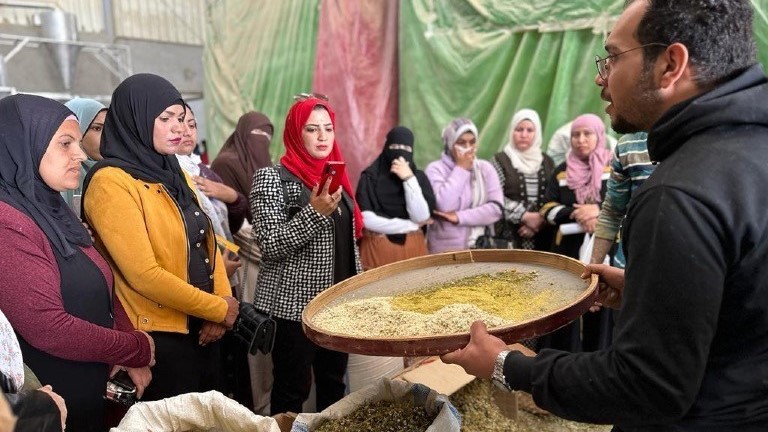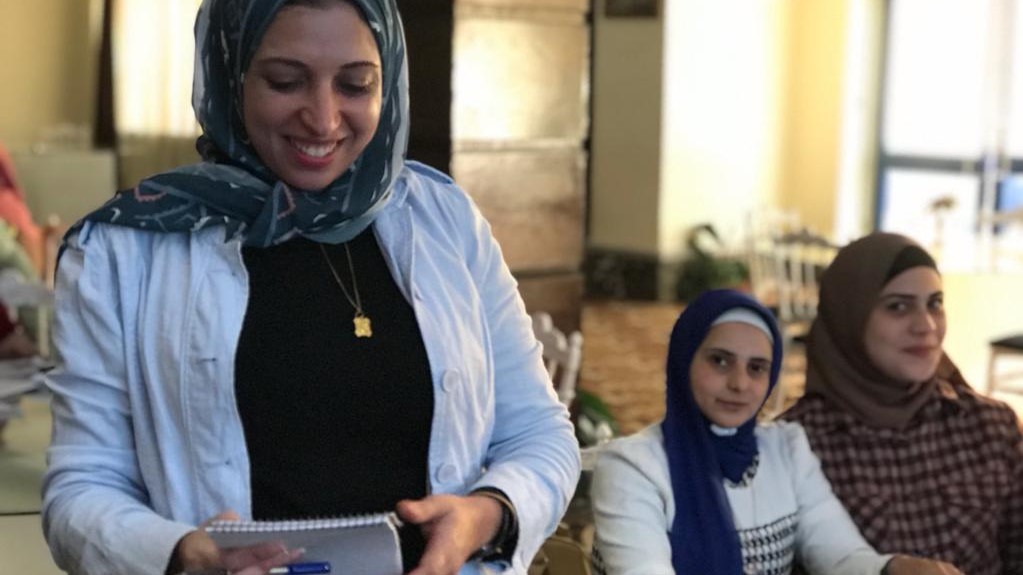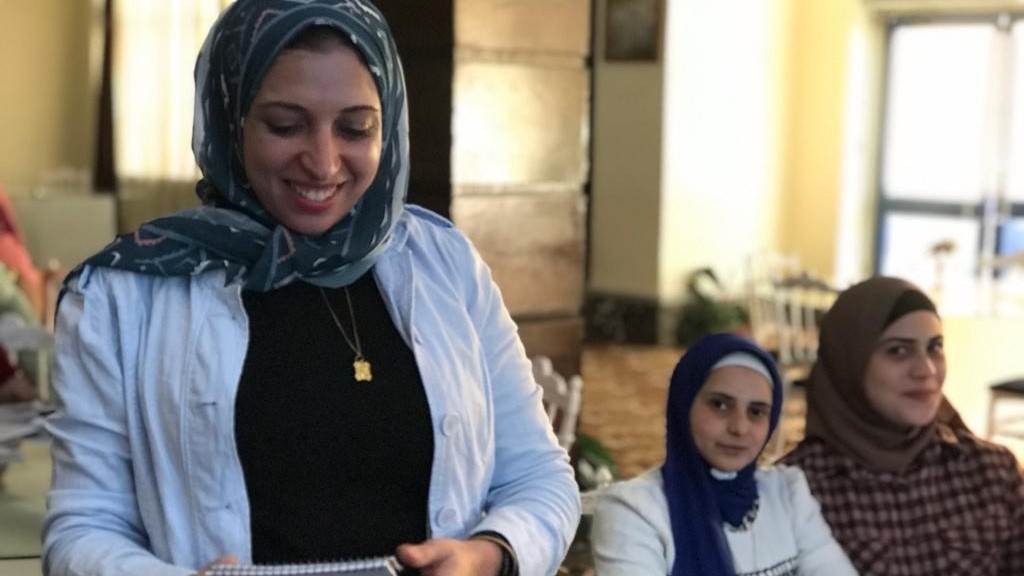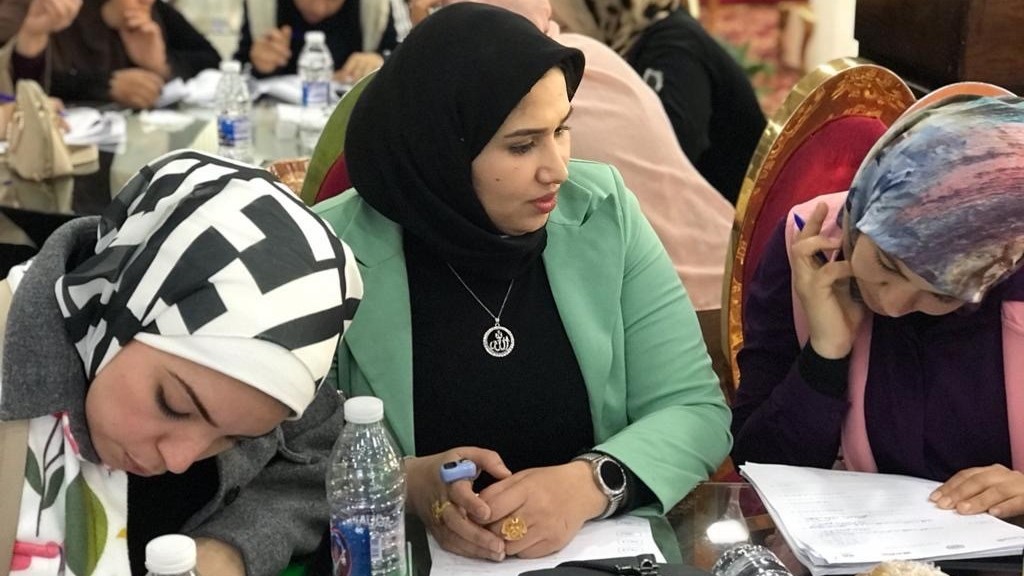

Rabeha: empowering women in rural Egypt
16 October 2023 Elena Cooke

Rural women are key agents for achieving sustainable development. They play a crucial role in agriculture production, rural enterprises and improving the wellbeing of their households. However, despite their substantial contribution to local and global economies, rural women continue to face gender inequalities, such as discriminatory laws and social norms, restricting their ability to reach their full potential.
To celebrate the United Nation’s International Day of Rural Women on October 15, we shine a light on the inspiring women supported by the ‘Women Economic Empowerment for Inclusive and Sustainable Growth in Egypt’ programme, also known as ‘Rabeha'. This initiative, jointly implemented by UNIDO and UN Women and generously funded by Global Affairs Canada, aims to increase women's access to employment and entrepreneurship opportunities. We explore how employability skills training provided by Rabeha is empowering women and improving rural livelihoods, paving the way for a more equitable future.
Expanding Opportunities for women
Rural women play an active role in collecting, cultivating, and processing medicinal and aromatic plants. This growing sector, deeply rooted in Egypt’s ancient history and traditional healing practices, presents opportunities for inclusive and sustainable economic growth.
Between August 2022 and June 2023, Rabeha supported 300 rural women in the governorates of Beni Suef, Fayoum, and Minya. The programme provided technical and soft skills training covering crucial areas such as communication skills, professional ethics, food safety, and effective drying treatments for medicinal and aromatic plants. As a result, these women developed the necessary knowledge and skills to find employment.

Empowering natural leaders
Traditional customs often restrict women from working outside their villages, especially those who are not married. To build trust and foster new opportunities for rural women, UNIDO strategically engaged natural leaders like Noura Nabil.
Noura, a highly respected figure in her village in Beni Suef, played a pivotal role in dispelling doubts about the benefits of women participating in the workforce. Her proactive efforts resulted in the mobilisation of 120 women from her village to participate in the Rabeha programme.

Reflecting on her transformative journey, Noura emphasised the value of Rabeha’s technical and employability skills training. “Before Rabeha we didn’t know about the companies in our area. I was very surprised that we were able to find jobs so quickly, that also matched our new skills.”
In March 2023, Noura secured a job at Al Sa’eed, a local agro-processing business for herbs, spices and fruits, and was quickly promoted. “I learned the importance of working hard and being patient, and it has paid off. I now have a permanent position as a quality supervisor. It’s more than I expected for myself in the company.”
Fair Employment for Sustainable Supply Chains
Rabeha has fostered fair employment practices and strengthened the sustainability of supply chains by directly engaging with the private sector. After understanding the recruitment needs of local employers, the UNIDO team only supported job matching with companies that met specific criteria including a commitment to gender standards and fair working conditions. For example, Al Sa’eed exemplified this commitment by agreeing to pay minimum wages and adopting fair working hours. The company has also taken additional measures, such as arranging a bus to transport the women from their village to and from work, prioritising their safety and wellbeing.

Azza Nabil, inspired by her sister Noura's success, also joined the program. The Bachelor of Commerce student secured a supervisory role as an administrative coordinator for the women from their village. Azza now organises their work schedules, handles payments, and serves as the communication focal point for any concerns or inquiries raised by her fellow women employees.
Reflecting on her experience, Azza noted, “It was unlike any other training. What I learned during the programme is directly applicable to my current job.” Both Azza and Noura underline they feel respected and appreciated for their dedication and contributions in the workplace.
“The male colleagues are welcoming and supportive of women in the workplace. Our roles and responsibilities are clear, and we work together harmoniously.”
Improved Livelihoods
Among the 121 women trained in Beni Suef, 70 have found employment (a 60% employment rate). Al Sa’eed and Al Estethmareya, two firms that process herbs and spices including cumin, anise, and marjoram, have been key employers.
The new income has empowered the women, boosting their confidence and financial independence. Noura reflected, “I can now support my 3 kids, and nothing feels better than being able to buy anything they want. I have more self-belief, that whatever I set my mind to, I will achieve”.
“I don’t have to ask my husband when I want to buy things,” Azza says. “At the beginning, my husband was a little hesitant, but I was able to convince him that I can organise my work and fulfil my role as a mother. Now he supports me in my job”.
Noura and Azza have not only embraced their new roles in the workplace but also within their rural community. Noura passionately stated, “My goal is to serve more people in my community and help them grow, financially and personally. If you are patient and persistent, you will succeed. This is our future and the future of our children.”
Rabeha (meaning “winner” in Arabic) aims to support the economic empowerment of more than 6,300 women in 7 governorates through increased access to employment and self-employment opportunities. The programme is implemented by UNIDO and UN Women in partnership with the National Council for Women (NCW), the Ministry of Trade and Industry (MoTI) and the Medium, Small and Micro Enterprises Development Agency (MSMEDA), with the generous support of Global Affairs Canada (GAC).